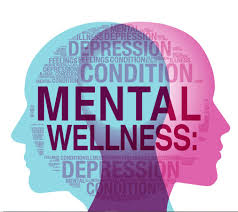The Importance of Mental Health and Wellbeing
Mental health and wellbeing are vital aspects of our overall health and quality of life. They encompass our emotional, psychological, and social well-being, influencing how we think, feel, and act in our daily lives.
Prioritizing mental health is essential for maintaining a balanced and fulfilling life. Just as we take care of our physical health through exercise and nutrition, it is equally important to nurture our mental health through self-care practices, seeking support when needed, and fostering positive relationships.
Good mental health enables us to cope with the stresses of life, work productively, build strong relationships, and contribute to our communities. It is a key factor in achieving success in various aspects of life, from personal relationships to professional endeavors.
Ways to Promote Mental Health and Wellbeing
Self-Care: Engage in activities that bring you joy and relaxation, such as exercise, meditation, hobbies, or spending time in nature.
Seek Support: Reach out to friends, family members, or mental health professionals when you need guidance or someone to talk to. It’s okay not to be okay.
Maintain Healthy Relationships: Surround yourself with supportive and caring individuals who lift you up and provide a sense of belonging.
The Impact of Mental Wellbeing on Physical Health
Research has shown that there is a strong connection between mental health and physical health. Poor mental health can contribute to various physical ailments such as heart disease, obesity, and weakened immune system.
By prioritizing your mental wellbeing, you are not only improving your emotional state but also enhancing your overall physical health. Taking care of your mind can have a ripple effect on your body’s well-being.
In Conclusion
Investing in your mental health is one of the most valuable investments you can make for yourself. By nurturing your mental wellbeing through self-care practices, seeking support when needed, and fostering positive relationships, you are laying the foundation for a happier and more fulfilling life.
Understanding Mental Health: Key Questions and Answers for Wellbeing
- What is mental health and why is it important?
- How can I improve my mental wellbeing?
- What are common signs and symptoms of poor mental health?
- Where can I seek help for mental health issues?
- How does stress impact mental wellbeing?
What is mental health and why is it important?
Mental health refers to our emotional, psychological, and social well-being, encompassing how we think, feel, and behave. It is crucial for overall quality of life as it impacts how we handle stress, form relationships, make decisions, and cope with challenges. Prioritising mental health is vital for achieving a balanced and fulfilling life. Just as we care for our physical health through exercise and nutrition, tending to our mental well-being through self-care practices, seeking support when needed, and nurturing positive relationships is equally essential. Investing in mental health not only enhances individual resilience but also contributes to healthier communities and societies overall.
How can I improve my mental wellbeing?
Improving mental wellbeing is a journey that requires self-awareness and proactive steps towards self-care. To enhance your mental health, consider incorporating activities that bring you joy and relaxation into your daily routine, such as mindfulness practices, physical exercise, hobbies you enjoy, or spending time in nature. Seeking support from friends, family members, or mental health professionals when needed is also crucial. Building and maintaining healthy relationships can provide a sense of connection and support that contributes to overall mental wellbeing. Remember that small steps taken consistently can lead to significant improvements in your mental health and quality of life.
What are common signs and symptoms of poor mental health?
Recognizing common signs and symptoms of poor mental health is crucial for early intervention and seeking appropriate support. Some indicators include persistent feelings of sadness or hopelessness, changes in appetite or sleep patterns, difficulty concentrating, withdrawing from social activities, increased irritability or mood swings, and experiencing unexplained physical ailments. It’s important to pay attention to these signs and seek help from a mental health professional if you or someone you know is exhibiting these symptoms. Prioritizing mental health awareness and seeking timely assistance can lead to improved overall well-being and quality of life.
Where can I seek help for mental health issues?
If you are seeking help for mental health issues, there are various resources available to support you on your journey towards better mental wellbeing. You can start by reaching out to your general practitioner (GP) who can provide guidance, referrals to specialists, or recommend appropriate treatment options. Additionally, mental health charities, helplines, and online platforms offer confidential support and information for individuals experiencing mental health challenges. Seeking help from a trained therapist or counsellor can also be beneficial in addressing specific mental health issues and developing coping strategies. Remember, reaching out for help is a courageous step towards prioritising your mental health and well-being.
How does stress impact mental wellbeing?
Stress can have a significant impact on mental wellbeing, affecting various aspects of our emotional and psychological health. When we experience stress, our bodies go into a state of heightened alertness, releasing hormones like cortisol that can disrupt the balance of neurotransmitters in the brain. Prolonged or intense stress can lead to feelings of anxiety, depression, and burnout, impacting our ability to cope with daily challenges and maintain a sense of well-being. It is essential to recognise the signs of stress and take proactive steps to manage it through relaxation techniques, seeking support from loved ones or professionals, and practising self-care to safeguard our mental health.

